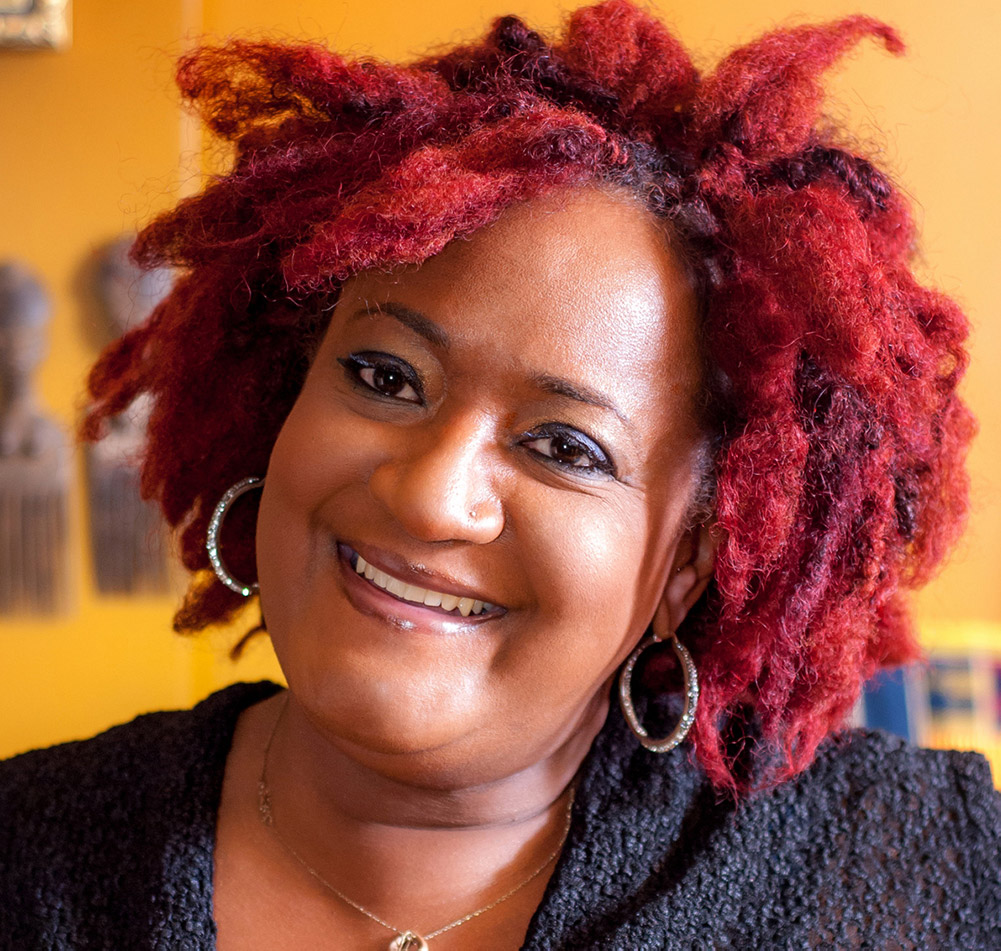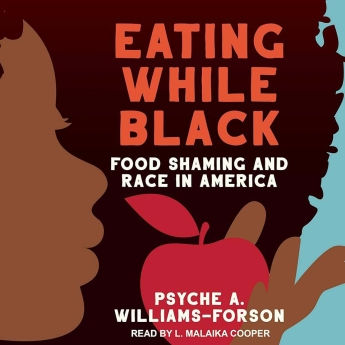Psyche A Williams-Forson

Education
Ph.D., American Studies, UMD, College Park
Certificate, Women's Studies, UMD, College Park
M.A., American Studies, UMD, College Park
B.A., English/African American Studies, Women’s Studies, University of Virginia
Research Expertise
African American/African Diaspora
Everyday Life
Food Studies
Gender
Material Culture
Museum Studies
Performance Studies
Race/Ethnicity
Dr. Psyche Williams-Forson is an award-winning scholar and thought leader in Black food studies, widely recognized both nationally and internationally for her groundbreaking research at the intersections of food, race, gender, and power. She is the author of the acclaimed Eating While Black: Food Shaming and Race in America—winner of the prestigious 2023 James Beard Media Award—and the prizewinning Building Houses out of Chicken Legs: Black Women, Food, and Power, honored by the American Folklore Society. She also co-edited Taking Food Public: Redefining Food in a Changing World, a foundational text in food studies.
Dr. Williams-Forson’s work provides essential insight into African and African American cultural contributions to Southern foodways and identity. Her scholarship is frequently cited for its innovation and accessibility, and her expertise has been featured in mainstream media, including Al Roker’s Family Style (NBC Today), Netflix’s Ugly Delicious, and the documentary The Invisible Vegan.
A distinguished academic leader, Dr. Williams-Forson served as Chair of the Department of American Studies from 2015 to 2025—becoming the first Black woman to hold this position. She is the Principal Investigator for Breaking the M.O.L.D. (Mellon/Maryland Opportunities for Leadership Development), a transformative initiative funded by the Andrew W. Mellon Foundation to expand leadership pathways for women and BIPOC scholars in the arts and humanities.
She holds affiliate appointments in Theatre, Dance, and Performing Studies; African American Studies; Anthropology; The Harriet Tubman Department of Women, Gender, and Sexuality Studies; and the Consortium on Race, Gender, and Ethnicity.
For more on her public-facing research and media contributions, visit psychewilliamsforson.com.
Select Publications:
- Eating While Black: Food Shaming and Race in America UNC Press, 2022 - 2023 James Beard Foundation Award Winner - Food Issues and Advocacy
- Taking Food Public: Redefining Foodways in a Changing World. Routledge, 2013.
- Building Houses Out of Chicken Legs: Black Women, Food, and Power. UNC Press, 2006.
- “Finding the Hidden Potential in Workplace Eating.” THRUUE. 2021.
- “In ‘Trouble’ with(out) Culture: Food Shaming and African American Foodways.” Spectra (Magazine of the National Communication Association). September 2019. 20 – 25.
- “Food as Hieroglyphics: Amiri Baraka and Black Expressive Culture.” Journal of American Studies of Turkey. 51 (2019): 43-48.
- “Black Lives Matter, Even in Food Justice.” Food, Fatness, Fitness Blog. http://foodfatnessfitness.com/author/psyche-williams-forson/ - Germany: Erfurt University. 2016.
- “ ‘I Haven’t Eaten If I Don’t Have My Soup and Fufu’”: Cultural Preservation through Food and Foodways among Ghanaian Migrants in the United States.” Africa Today 61.1 (2014): 69-87
- Focus Essay - “Who’s in the Kitchen with Dinah? Intersectionality and Food Studies.” Food, Culture, and Society 14.1 (March 2011): 7-16.
Courses
- AMST418G - Food, Trauma, Sustainability (Course awarded by the UMD Academy for Innovation and Entrepreneurship for using design thinking methodology)
- AMST498W – Black Class: From the Harlem Renaissance to Hip Hop
- AMST629D – Race, Class, Material Culture – Spring 2018
- AMST628D – Feminist Cultural Criticism of Diasporic Texts
- AMST698 – Directed Readings – Food Studies
Publications
Eating While Black
In "Eating While Black," Psyche A. Williams-Forson explores how anti-Black racism shapes food culture, revealing the deep-seated biases that dictate what is deemed “healthful” or “correct” to eat.
Author/Lead: Psyche A Willi…Psyche A. Williams-Forson is one of our leading thinkers about food in America. In Eating While Black, she offers her knowledge and experience to illuminate how anti-Black racism operates in the practice and culture of eating. She shows how mass media, nutrition science, economics, and public policy drive entrenched opinions among both Black and non-Black Americans about what is healthful and right to eat. Distorted views of how and what Black people eat are pervasive, bolstering the belief that they must be corrected and regulated. What is at stake is nothing less than whether Americans can learn to embrace nonracist understandings and practices in relation to food.
Sustainable culture—what keeps a community alive and thriving—is essential to Black peoples' fight for access and equity, and food is central to this fight. Starkly exposing the rampant shaming and policing around how Black people eat, Williams-Forson contemplates food's role in cultural transmission, belonging, homemaking, and survival. Black people's relationships to food have historically been connected to extreme forms of control and scarcity—as well as to stunning creativity and ingenuity. In advancing dialogue about eating and race, this book urges us to think and talk about food in new ways in order to improve American society on both personal and structural levels.


